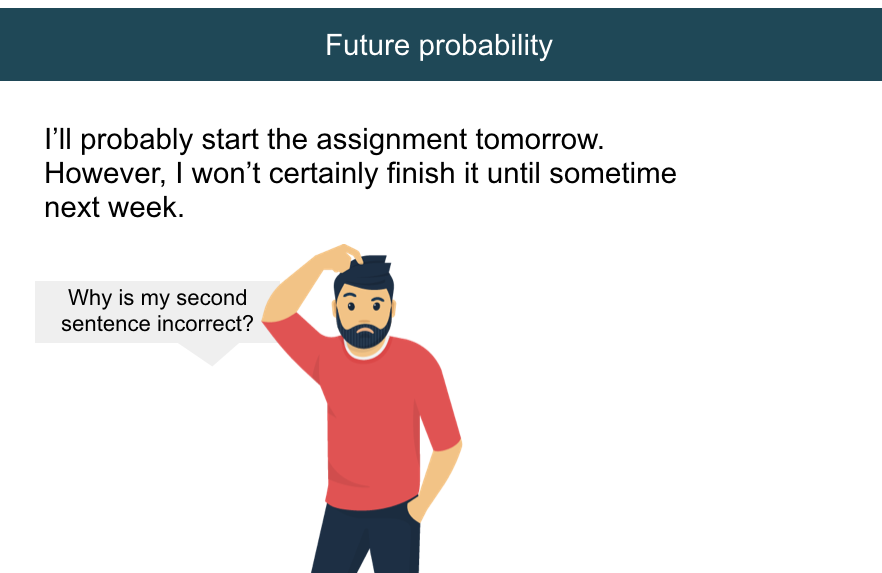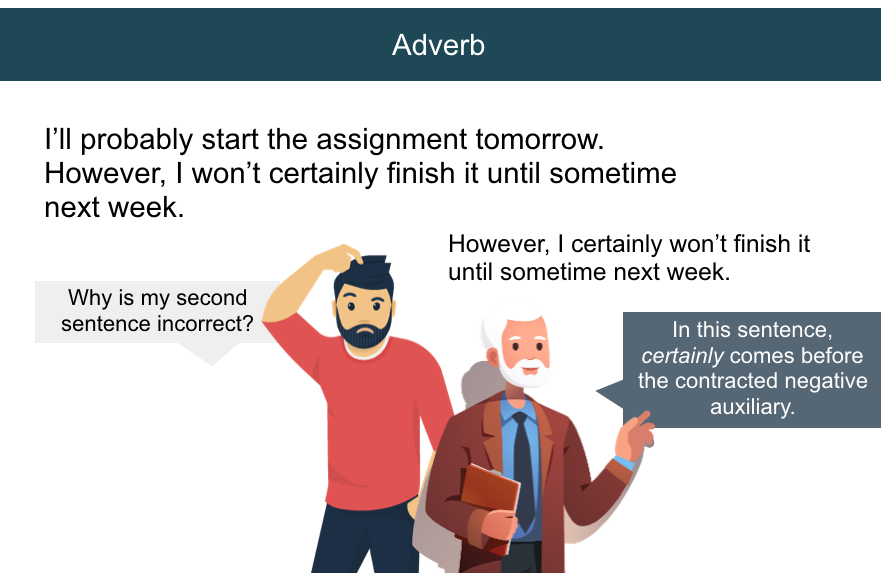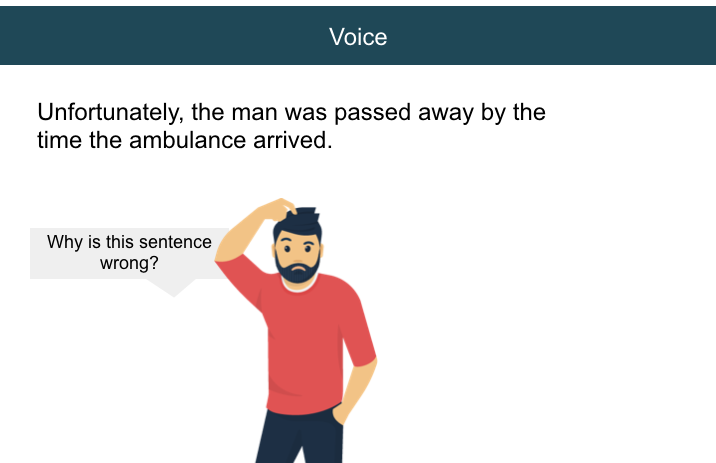5 min read
Share this post

It’s happened to every teacher: A student asks “why” and the teacher has to say “Aah…because…that’s how we do it in English.” In this post we’ll take a look at some common upper-intermediate ESL mistakes, introduce the B2 Step-by-step curriculum, and issue a challenge for teachers!
.
.
.
.
At lower levels, student mistakes are easy to explain. Beginner learners are more concerned with basic communication and obvious mistakes. At higher levels, common upper-intermediate ESL mistakes are more complicated. The questions get harder, and the explanations have to be more detailed.
That means a teacher has to be ready. It’s one thing to be able to catch and correct the mistake, but it’s quite another to be able to adequately explain why something is wrong. This is often what separates an “ok” teacher from a great one.
Let’s look at some examples of common upper-intermediate ESL mistakes:
.

.
It’s pretty easy to catch the error here, and to know how to fix it: Just switch “certainly” and “won’t.” We can even use some lingo:
.

.
However, what happens if (when) the student asks:
Why? Can you show me some other examples of this?
That’s when things get tricky!
.
.
A few weeks ago, I asked Off2Class users how they would explain the above error to a student. The best answer came from Helen in England, who wrote:
With the 1st question I would explain that the adverb “certainly” should be placed before the NEGATIVE CONTRACTED form of “will” (won’t), whereas it is placed after the AFFIRMATIVE form and before the main verb.
Example: I will CERTAINLY help you with that problem (affirmative)
I CERTAINLY won’t ask you to help me. (negative)
.
To make sure you don’t get caught flat-footed by an upper-intermediate question, you can use the Off2Class Step-by-Step Curriculum at the B2 level, which we’ve just released into the lesson library. In addition to fantastic lesson content, each lesson is packed with helpful teacher notes that support you every step of the way.
Check them out in our lesson library now!
.
.
For a bit of fun, take a look at the five question quiz below. If you’re a real grammarian, leave a comment below choosing one of the errors to explain. Remember, it’s not just correcting the error, but explaining why it’s wrong:
.

.
.
If these questions make you nervous, not to worry! The teacher notes in the B2 Step-by-step curriculum have you covered for all of these competencies, and more. Check out the latest lessons, and if you can, answer one of the quiz questions with a comment!
Share this post



5 Comments
1. Voice: “Unfortunately, the man was passed away by the time the ambulance arrived.” Use the past perfect (HAD + PAST PARTICIPLE) for two actions that occur at different times in the past. The action that occurs further in the past uses the past perfect (HAD PASSED). The more recent of the past actions uses the simple past. In this sentence, the man died first and then the ambulance arrived. So, the sentence should be, “Unfortunately, the man HAD PASSED away by the time the ambulance arrived.”
2. Adverbs: “It’s late enough to walk home” should be “It’s too late to walk home.” “Too”, an adverb, is used before an adjective or adverb to mean “to a higher degree than is desirable.” Because the sentences together express that it is not safe to walk alone at night, use “too” instead of “enough”. While “enough” is also an adverb, and is used after an adverb or adjective, it means “to the required degree or extent.”
3. Causative Structures: Place “your house” directly after the causative verb “get” (“When are you going to get your house painted?”). Use the following sentence structure to express that something was done without having to say who did it.
GET SOMETHING DONE
I got my teeth cleaned.
Did you get your car fixed?
4. Conditional: There are four types of conditional sentences. First conditional sentences, which this sentence should be, are used to express situations in which the outcome is likely (but not guaranteed) to happen in the future. In the “If” clause, use the simple present; in the main clause, use the simple future tense. So, to correct your sentence, in the main clause change “could” to “will”.
If he studies harder, he could be able to become a doctor. (INCORRECT)
If he studies harder, he will be able to become a doctor. (CORRECT)
5. Relative Clause: Eliminate “him” at the end of the sentence. Then, the correct sentence becomes, “You know that man you gave the present to? ” Note that, you could also express this more formally (“You know that man to whom you gave the present?”), but this is rarely used in conversational English and more likely would be used in formal writing.
Question 1 – It should be “had passed away” – Two actions and one action happened before the other action. The action that happened first should be in the past perfect. Unfortunately, the man had passed away by the time the ambulance arrived.
2. Adjectives are modified by adverbs of intensity – Very, too, really, extremely
It’s too late / very late / really to walk home. It’s not safe. You need to call a taxi.
3. We use get something done – get your house painted
4. If + present+ will or if+present+present for consequences – If he studies…, he will be able to….
5. Tha man is referred to twice in the same sentence You know that man you gave the present to? I don’t like him.
You could also say: You know that man to whom you gave the present?
Just a comment, and a question, regarding Shirley and Pedro’s responses. Both are excellent, but I think only if the challenge is worded differently, like ‘please correct these mistakes, and explain the grammar rules involved. Fair enough, but the challenge was not worded that way, rather it was ‘why is this incorrect?’ or similar.
So I must ask, if we can choose between responses that directly address the challenges as stated, and others like Shirley’s and Pedro’s, which is more likely to be seen as more satisfactory by the student? And further, which would be truly most effective? The same?
No 4: would this be incorrect? “If he studied harder he could become a doctor.“
1. The sentence is written in the passive. However it is an active verb. The subject passed away. In the active voice it should be in past perfect.
2. the meaning of enough is confused. It means sufficient and is therefore inappropriate. Too should be used.
3. In this structure it should be: get+ object+ verb 3.
4. We do not repeat the subject/object of a relative clause therefore we do not need to say: him.